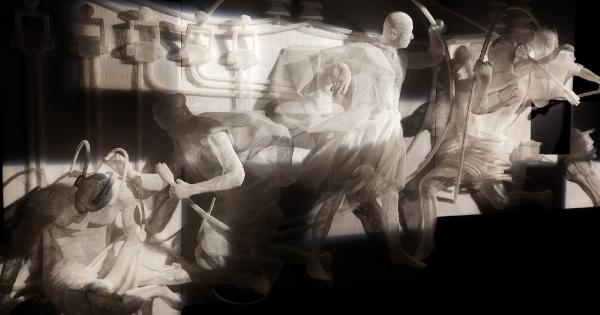Obsessive-Compulsive Disorder (OCD) is a type of mental illness that affects millions of people worldwide.
The condition is characterized by obsessive or repetitive thoughts, feelings, or behaviors that may interfere with daily activities, causing distress, anxiety, or phobia. OCD may manifest in different ways depending on the severity of the symptoms, the triggers, and the individual’s personality. However, there are some common warning signs of OCD that people should watch out for.
In this article, we will discuss some of the most common warning signs of OCD in pictures.
1. Constant Checking
People with OCD may have an excessive need to check things repeatedly, such as locks, appliances, switches, doors, or their own body parts. The behavior may be driven by an irrational fear of harm or danger, or simply a desire for perfection or control.
The person may feel compelled to repeat the checking ritual until they feel a sense of relief, which may only be temporary. In some cases, repeated checking may interfere with normal daily functioning, causing anxiety, stress, or social isolation.

2. Excessive Cleaning
OCD may also lead to obsessive or compulsive cleaning behaviors, such as washing hands, laundry, dishes, or surfaces repeatedly. The person may feel contaminated or polluted by germs or bacteria, and may feel compelled to remove them compulsively.
The behavior may become so excessive that it interferes with normal daily functioning, causing physical damage, dryness, or irritation on the skin, or obsession with the cleanliness of others or the environment.

3. Repetitive Counting
Some people with OCD may have an overwhelming need to count things repeatedly, such as steps, objects, or words, either aloud or in their mind. The behavior may be based on superstition, ritual, or the desire for symmetry or order.
The person may feel compelled to perform the counting ritual until they feel a sense of completeness or closure, which may only be temporary. The behavior may interfere with normal daily activities, causing anxiety, fatigue, or irritability.

4. Hoarding or Collecting
OCD may also cause some people to hoard or collect items that may seem useless or excessive. The behavior may be driven by the fear of losing something important, the desire for security or comfort, or an emotional attachment to the objects.
The person may find it hard to discard or organize the items, and may feel distressed or anxious if they are forced to do so. The behavior may interfere with normal daily activities, causing clutter, isolation, or judgment from others.

5. Intrusive Thoughts
One of the most distressing symptoms of OCD is the presence of intrusive thoughts, impulses, or images that are unwanted and persistent.
The person may experience these thoughts as ego-dystonic, meaning they feel alien and contradictory to their true values or beliefs. The thoughts may be related to harm, violence, sexuality, religion, or other taboo subjects, and may cause intense anxiety or guilt.
The person may feel compelled to neutralize or suppress the thoughts, which may lead to compulsive behaviors or avoidance.

6. Ritualistic Behaviors
OCD may involve various ritualistic behaviors that are repetitive, time-consuming, and distressing. The behaviors may be based on superstition, religion, or the desire for control or symmetry.
The person may feel compelled to perform the rituals until they feel a sense of relief or completion, but the feeling may only be temporary. The behaviors may interfere with normal daily functioning, causing isolation, stigma, or avoidance of triggers.

In conclusion, OCD is a serious mental illness that affects many people across the world. The condition may manifest in different ways, but there are some common warning signs of OCD that people should watch out for.
These include constant checking, excessive cleaning, repetitive counting, hoarding or collecting, intrusive thoughts, and ritualistic behaviors. If you or someone you know experience any of these symptoms, it is important to seek professional help and support.





























